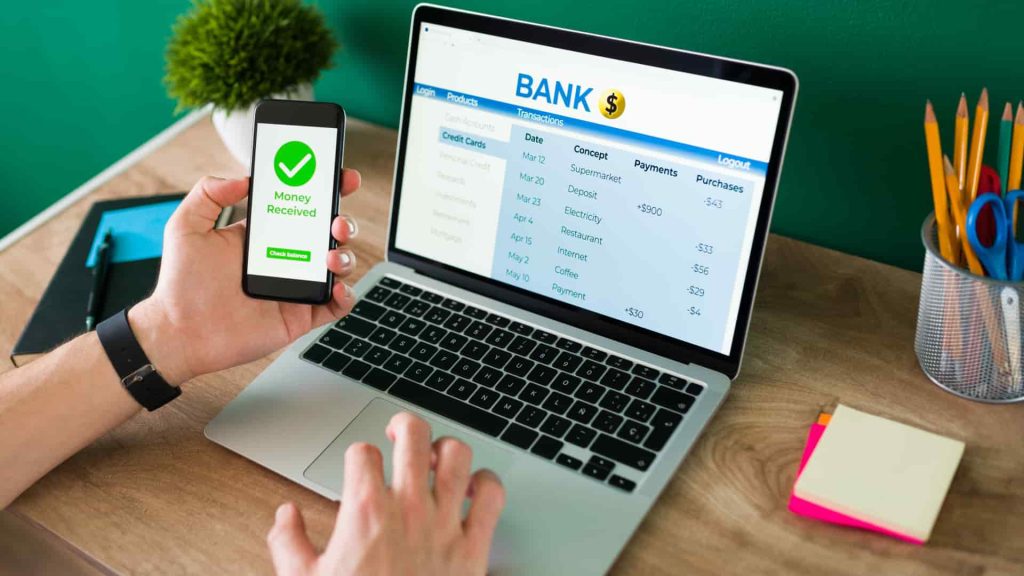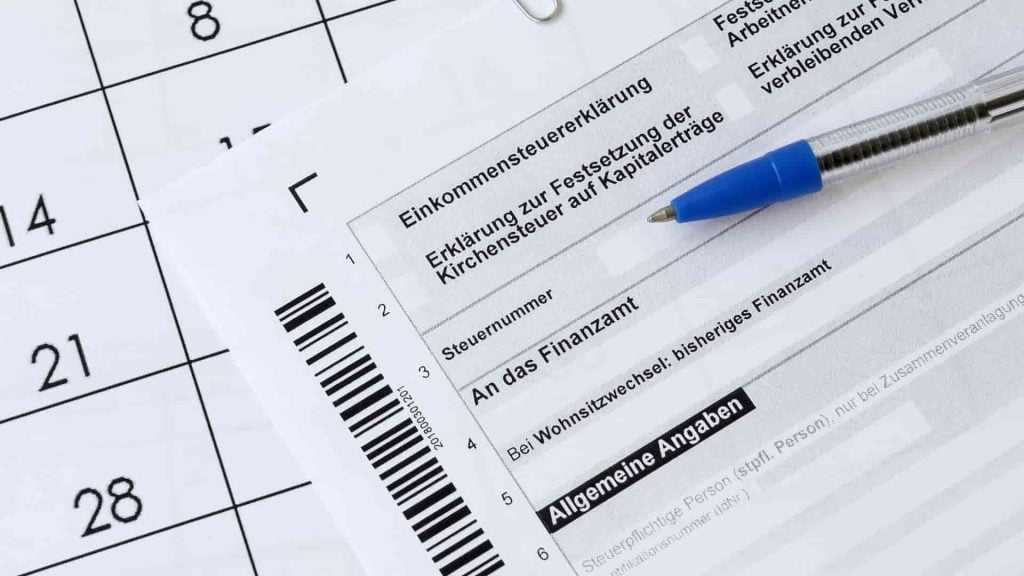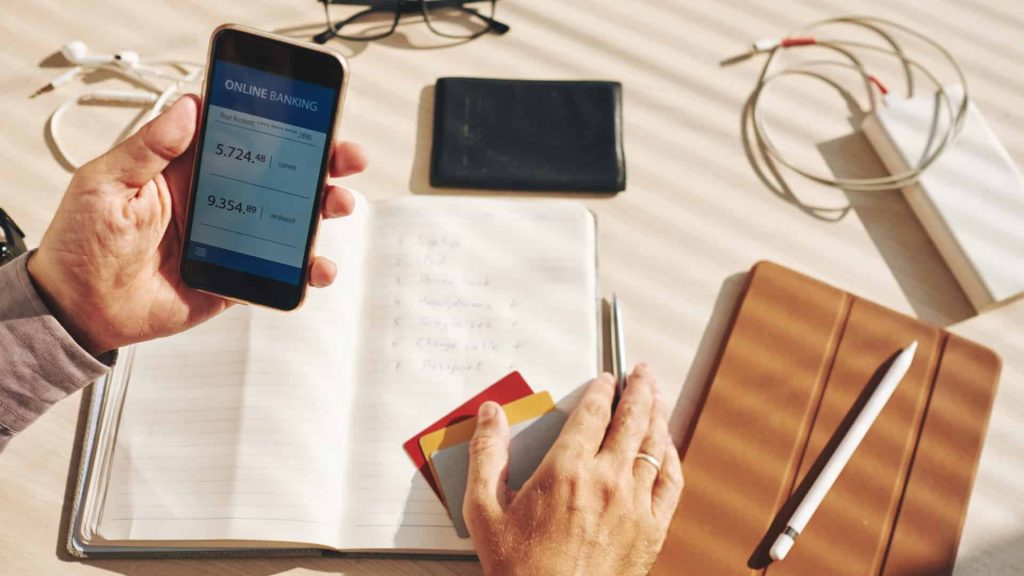
Have you ever wondered why over 99% of adults in Germany have a bank account? It’s not just a staggering statistic; it’s a testament to the crucial role that banking plays in the everyday life of Germans. Setting up your German bank account is a simple, straightforward process.
Whether you’re a student embarking on an exchange program, a professional relocating for work, or simply an expat seeking a new adventure in Germany, setting up a bank account is likely at the top of your to-do list. But where do you start in a country known for its diverse and robust banking system?
In Germany, the banking landscape is as varied as its cultural heritage. From the community-focused “Sparkassen” and “Landesbanken” to the efficiency-driven private “Geschäftsbanken,” and the collaborative spirit of “Genossenschaftsbanken,” the choices can be overwhelming. But did you know that many of these banks offer a “Girokonto” for free, complete with a basic debit card, online banking, and efficient payment processing?
Are you curious about how to leverage the diverse banking options to your advantage? Or perhaps you’re wondering how to smoothly transition your financial life to a new country?
Well, we definitely have answers for you, so get ready.
Your recommended post for the week: A Peek into a Day in German Life
A Small Breakdown of the German Banking System
Germany’s banking system is renowned for its efficiency, stability, and diversity, catering to a wide range of financial needs and preferences. This system is underpinned by three distinct pillars, each offering unique services and benefits. Germany is as efficient with their banking system as they are with most things. They have different kinds of banks for different needs.

| Type of bank | What are they used for? |
| Public Banks (Öffentliche Banken) | Includes “Sparkassen” and “Landesbanken.” These banks are usually owned by local governments and focus on serving the regional community. |
| Private Banks (Private Banken) | Known as “Geschäftsbanken,” these are privately owned and operate on a for-profit basis, offering a wide range of services. |
| Cooperative Banks (Genossenschaftsbanken) | These banks operate on a membership system, where customers can become members or shareholders. They are known for their local involvement and customer-focused services. |
The Hallmark of Stability and Reliability
German banks are globally recognized for their stability and reliability. This reputation is bolstered by stringent regulatory frameworks and a conservative banking culture that prioritizes financial security and risk management.
Whether you’re dealing with a large private bank or a small local Sparkasse, the German banking system offers a secure and trustworthy environment for managing your finances.
Preparing the Necessary Documents When Setting Up Your German Bank Account
Opening a bank account in Germany requires a bit of preparation, especially when it comes to gathering the necessary documents.
- Valid Passport or National ID: For identity verification.
- Proof of Residence (Anmeldung): A registration certificate obtained after registering your address at the local residents’ registration office.
- Schufa Credit Score: A report detailing your credit history in Germany.
- Proof of Employment or Study: A contract or letter from your employer or educational institution.
- Tax ID (Steuer-ID): Issued by the German tax authorities.
Don’t forget to read: 5 Amazing Ways in Which Berlin Practices Sustainability and Eco-Friendly Living

Obtaining the Required Documents
- Valid Passport or National ID: Ensure it’s current and valid.
- Proof of Residence: Register your address at the nearest Bürgeramt or Einwohnermeldeamt.
- Schufa Credit Score: Apply through the official Schufa website or through a bank.
- Proof of Employment or Study: Request this from your employer or educational institution.
- Tax ID: Automatically sent by mail after registering your address.
Pro Tip for Non-EU Residents: Familiarize yourself with basic German banking terms or seek assistance for translation.
Choosing the Right Bank and Account Type
Selecting the right bank in Germany hinges on various factors, each playing a crucial role in your banking experience. Below are a few criteria you need to consider when picking a bank.
- Location: Proximity to your residence or workplace for easy access.
- Fees: Look for low or no monthly fees, transaction fees, and ATM withdrawal charges.
- Services: Range of services offered, like loans, insurance, and investment options.
- Language Support: Especially important for non-German speakers; some banks offer services in English and other languages.

Understanding Account Types When Setting Up a Bank Account in Germany
| Account type | What is it used for? |
| Checking Account (Girokonto) | Standard account for daily transactions. Offers a debit card, online banking, and usually comes with a monthly fee. |
| Savings Account (Sparkonto) | Ideal for saving money. Offers interest on deposits, but may have restrictions on withdrawals. |
| Student Account (Studentenkonto) | Usually fee-free, designed for students with features like low overdraft fees and student deals. |
The fourth option? Online Banking!
Here are a few reasons why online banking is revolutionising the finance sector and why you should be considering it as well.
- Convenience: Manage your account from anywhere, 24/7.
- Paperless Transactions: Environmentally friendly and efficient.
- Real-Time Notifications: Stay updated on account activity.
- Easy Bill Payments: Automated and hassle-free.
We think you’ll love this: 7 Amazing German Celebrations and Holidays That Need To Be On Your Radar
Opening Your First Account at a German Bank
Opening a bank account in Germany can be a straightforward, hassle-free process if you follow these steps:
- Gather All Required Documents: Ensure you have your passport, proof of residence, Schufa credit score, proof of employment or study, and your tax ID ready.
- Choose the Right Bank and Account Type: Based on your needs and preferences, select a bank and decide whether you need a checking, savings, or student account.
- Visit the Bank or Their Website: For most banks, you can either visit a local branch or start the process online.
- Complete the Application Form: Fill in all the required details on the application form, either online or at the bank.
- Verification Process: The bank will verify your identity and documents. This might be done in person, via a video call, or through an online verification system.
- Account Approval: Once your application is approved, your account will be opened.

Online Application Process to Open a Bank Account in Germany
Many banks in Germany offer the option to apply for an account online. This is particularly convenient for those who prefer digital services.
The online process generally involves filling out the application form on the bank’s website, uploading the necessary documents, and verifying your identity through a secure online system. Some banks may require a follow-up phone call or a video verification process.
What to Expect During a Bank Appointment
If you choose to open an account in person, here’s what you can typically expect:
- Personal Interaction: A bank representative will discuss your needs and help you choose the right account type.
- Document Verification: They will check your documents to ensure everything is in order.
- Form Filling: The representative will assist you in filling out the application form.
- Explanation of Terms: Expect a thorough explanation of the account’s terms, fees, and services.
- Immediate Queries: This is a great opportunity to ask any questions you might have.
Also read: Unlock 4 Secrets to a Smooth German Work Visa Process Made Easier Than Ever!

Post Account Opening Steps When Starting a Bank Account in Germany
Once your German bank account is successfully opened, there are several key steps to follow to ensure you can fully utilize your new account.
Activating Online Banking
Most banks will provide you with credentials or a process to set up online banking. This typically involves:
- Receiving Temporary Login Details: These are often sent via email or post.
- Creating a Secure Password: Ensure it’s strong and unique.
- Activating TAN Procedures: Transaction Authentication Numbers (TAN) are crucial for securing online transactions. Set up the method preferred by your bank, such as SMS-TAN or a TAN generator.
Setting Up Debit Cards, Credit Cards, and Online Payments
- Debit Card Activation: You’ll usually receive your debit card by post. Follow the bank’s instructions to activate it, which may include setting a PIN.
- Applying for a Credit Card: If needed, apply for a credit card. This might require additional approval from the bank.
- Setting Up Direct Debits and Standing Orders: Arrange for regular payments, like rent or utilities, through your online banking portal.
Tips for Managing Your German Bank Account
- Regularly Monitor Your Account: Keep an eye on your transactions to spot any unusual activity.
- Understand Fees: Be aware of any potential fees for ATM withdrawals, international transactions, or overdrafts.
- Utilize Mobile Banking Apps: Many German banks offer their own apps for convenient account management.
- Stay Informed: Keep up with any changes in your bank’s policies or fees.
- Plan for Savings: Consider setting up a separate savings account or an automated savings plan.
Make sure to read: Top 5 Exclusive Apple Discounts for Students in Germany You Can’t Miss!

Common Challenges and Solutions When Opening a German Bank Account
Trying to find your way around the German banking system as a foreigner can present certain challenges. Understanding and addressing these can make your banking experience smoother.
| Type of challenge | Issue faced | Solutions for the challenge |
| Language barriers | Many foreigners struggle with banking-related tasks due to limited German language proficiency. | Opt for banks that offer services in English or your native language. Use online banking platforms, as they often have multilingual options. |
| Establishing credit history | Newcomers to Germany typically lack a local credit history, which can be a hurdle in obtaining credit services. | Start with a basic account and consistently use your debit card. Consider applying for a small loan or a credit card to begin building your credit history. |
| Understanding local banking norms | Different banking practices and regulations compared to your home country can be confusing. | Seek advice from expat groups, financial advisors, or the bank’s customer service. They can offer insights into German banking customs and regulations. |
Take the First Step, Open Your First German Bank Account
Setting up a bank account in Germany, while initially daunting, can be a manageable and efficient process with the right preparation and understanding. From choosing the appropriate bank and account type to navigating post-account opening steps, each phase is an opportunity to integrate more seamlessly into your new life in Germany.
Have you considered which bank aligns best with your needs? Are you prepared with all the necessary documents? How will you tackle the challenges of language and credit history?
Your first German bank account is more than a financial necessity; it’s a step towards a new level of independence and integration in Germany.




